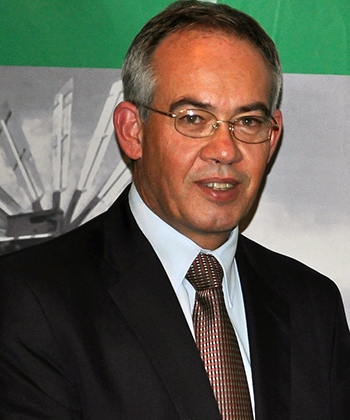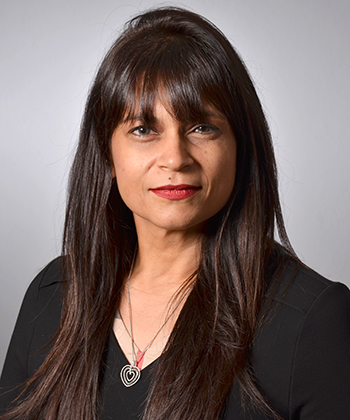
The African college of excellence in the social and human sciences
The COVID-19 national lockdown has demonstrated the tremendous need among all our citizens for reliable, credible information, says Unisa’s Prof Les Labuschagne, Executive Director of the Department of Research, Innovation and Commercialisation. "With the advent of fake news, it is becoming more difficult for the average person to differentiate between authentic and non-authentic information. Misinformation often has consequences, and in this case, could easily lead to the loss of life." He says that while researchers are doing an excellent job of conducting scientific research, this often does not find its way into the public domain.

"We are all aware of the challenges often posed to academics and universities about the relevance of their research and how accessible it is to those outside universities. The Conversation is a medium available through which it can be done."
"It is not an accredited publication but the rewards of wide exposure to a much bigger audience and more responses to it should be enough of a motivation."
Prof Dirk Kotzé (Department of Political Sciences, College of Human Sciences) received a The Conversation Research Communication recognition award at the Unisa 2020 Research & Innovation Awards for the highest number of contributions for 2019.
"Platforms such as The Conversation are crucial in translating the results into something that is understandable and accessible to the average person. Research cannot be done for a small exclusive community any more. It is the responsibility and moral duty of each and every researcher, especially those at publicly funded universities, to make their research accessible to those who ultimately pay for it. This extends beyond open access publishing into the public domain of popular media,” affirms Labuschagne.
Prof Dirk Kotzé, Department of Political Sciences, College of Human Sciences (CHS), points out that The Conversation is a very specific niche publication. "It is located at the point where academic research and the media (or the public’s interest) converges. The challenge for academics is to write an article of 800 words (and not 7 000) in a discourse understandable for non-experts but still academic in nature and with embedded references in the text. It is, therefore, not an op-ed article for the popular media. The audience is much more extensive than the academic journal readers."
Several Unisa authors have already published articles with more than 50 000 views on each. Dr Roshelle Ramfol, Senior Lecturer: Department of Taxation, College of Accounting Sciences (CAS), whose article, A theory of a tax revolt: Is South Africa on the brink?, garnered the most hits by a Unisa academic in 2019, says that watching the community engage in discussions on her publication has been somewhat surreal. "Academic publications have a narrow audience. However, media shows you that by adopting simple language you can effectively communicate the message within your research to a wider audience. An added advantage is that the reader is directed to the original publication and has global accessibility."
"The Conversation provides a dashboard for the authors on which very useful statistics of their articles appear. It provides an indication of the local and international composition of those who have read each of the articles and where it was republished. In summary, for the author, it provides much more information than a journal article about who reads it, when and where," explains Kotzé.
Ramfol adds that several opportunities for collaboration are also presented, including local and international radio stations, advocacy groups and publishing houses. "My networks also grew as people reached out to contact me on LinkedIn and ResearchGate. It was also exciting to see that my article was trending on the media."

"Winning the award for 2019 in the category of the most read article was serendipitous. Not only because it is my first article in the publication, but because it was only published on 27 November 2019. I feel both elated to be recognised for my contribution and inspired to publish."
"My feelings are best captured by a Lois McMaster Bujold quote: 'It's a bizarre but wonderful feeling, to arrive dead centre of a target you didn’t even know you were aiming for.'"
Dr Roshelle Ramfol (Department of Taxation, College of Accounting Sciences) received a The Conversation Research Communication recognition award for the most read article for 2019 at the Unisa 2020 Research & Innovation Awards.
Kotzé says that only authors with postgraduate qualifications can publish with The Conversation, a wholly online publication, started in Australia but now also including an African edition, edited in Johannesburg. "Articles are published in English or French on a daily basis. They are published in the categories of arts and culture, business and economy, environment and energy, health and medicine, politics, and science and technology. More than 100 000 academics from about 3 200 research institutions and universities across the globe participate in this. About 10.7 million readers in total have access to the publication’s different editions."
Kotzé points out that the attraction of The Conversation is that it provides a forum for academics to play the role of facilitator between the academic world and the public. The content is academic in nature but it must be presented in a format that is accessible for a wider audience.
Ramfol notes that after attending the two-day skills development workshop "The Art of Research" for early career and emerging researchers hosted by Jive Media Africa, she was provided with the practical tools to use media as a platform to grow the impact and influence of her research. "At the workshop, I used an academic piece that was in the pipeline to pitch an article idea to the editor of The Conversation. In November 2019, I received confirmation of the publication of that particular scholarly piece. On the very same day, I simply clicked the submit button as all the preparation work was completed during the training sessions."
"We are all aware of the challenges often posed to academics and universities about the relevance of their research and how accessible it is to those outside universities. Here is a medium available through which it can be done," adds Kotzé. For Unisa academics this provides an excellent opportunity to achieve these goals. "So far only 38 Unisa academics or researchers have published about 90 articles over the last five years on this site. The articles are not peer-reviewed but thoroughly edited by the publication’s editors. It is therefore not an accredited publication but the rewards of wide exposure to a much bigger audience and more responses to it should be enough of a motivation," urges Kotzé.
"Without a shadow of doubt, I would definitely encourage my colleagues to utilise media as a platform to increase awareness of your research, grow your networks and the potential of other opportunities that may have never come through to you via the traditional channels," concludes Ramfol.
* Compiled by Sharon Farrell, Editor: Internal Communication, Department of Institutional Advancement
Publish date: 2020-04-28 00:00:00.0